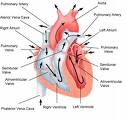Side effects of Chelation
Chelation Therapy is a safe procedure when properly adminstered by a properly trained professional. However, as with all other procedures, side effects are possible. But, prevention of side effects comes from knowledge and preparation.
Chelating Agents themselves are potentially toxic. As well, Chelating Agents can bind to, and remove, elements in the body which are necessary for regular functioning (for example: calcium and zinc). Large doses of vitamins usually accompany the administration of the chelating agent to minimize side effects, potential toxicity of the chelating agent, and to maintain the normal balance and functioning of the body during and after Chelation Therapy.
Sometimes the level of toxicity is life threatening and, therefore, requires a large dose of the chelating agent. Under those circumstances, treatment may need to be conducted in the hospital so that it may be monitored for possible side effects. Otherwise, Chelation Therapy is usually conducted as an outpatient basis.
Side effects can be minimized if Chelation is administered by a physician who has been properly trained and is fully competent in the use of Chelation Therapy. In the Chelation Treatments by a properly trained and competent physican, not one death has been reported that was caused directly by Chelating Therapy.
If side effects occur, they are usually minor and are usually very easily controlled by altering the dose, duration, and/or frequency of the treatment as well as other simple measures (some of which are stated below). Side effects also tend to diminish after to first few treatments.
Some of the most common side effects reported are:
-
Headaches. Since this side effect is generally from low blood sugar, it can then usually be prevented by eating before and during Chelation. Headaches can also be from dehydration as the Chelating treatment will cause urination and/or sweat. To prevent, asssure that you eat well before, during, and after Chelating with a diet that includes plenty of liquids.
Diarrhea. Most people confuse this side effect with the actual treatment. Remember, the by product of Chelation Therapy either is in the urine or feces or in your sweat. Eat right, which is to include plenty of liquids while trying to avoid spicy foods. You will urine more frequently for 2 reasons: increased kidney function and expulsion of the Chelating substances together with its encased impurity. Weight loss may also be experienced, particularly in those people who suffered fluid retention prior to Chelation.
Nausea. Typically the result of a Vitamin B6 deficiency and, therefore, remedied as well as prevented by supplementation containing Vitamin B6.
Fatigue. Sometimes confused with a feeling of faintness. Faintness can also be a side effect of Chelation, but a good side effect common in people with high blood pressure. Faintness occurs because of the sudden drop in your blood pressure, a drop usually to closer to a normal level or a drop below a normal level for peolple with normal blood pressure. On the other hand, Faitgue, is the result of a loss of nutrients during the Chelating treatment. To prevent fatigue, eat a diet high in potassium, zinc, and magnesium or take supplements for these minerals. Do this before, during, and after Chelating.
Joint Pain. If the joint pain rises to the level of flu-like aches, immediately report this to your doctor or therapist that is administering the Chelation. The dosaged administered will usually be reduced and the symptom should disappear. Less severe joint pains sometimes occur in patients and can be reduced by less frequent Chelating treatments.
Cramps. Cramps are usually due to a loss of magnesium during the Chelating process but can also result from dehyrdration (sweating can cause loss of salt).
Convulsions. Usually the result of too large a dose of the Chelating agent or too rapid of an infusion of the Chelating agent. This can be remedied by an injection of calcium gluconate.
Skin Irritation/Outbreak/Rash/Redness/Swelling. This sort of inflammation can occur at the IV site for intravenous Chelating. However, if is not localized at the IV site, then it is typically the result of the loss of Zinc and Vitamin B6 due to the Chelating process. Therefore, taking supplements containing these nutrients will generally prevent and/or alleviate this side effect.
Kidney Toxicity. This side effect has caused deaths in the past (the 1950s). During that time, the dosage was 10 grams per infusion. However, the dosage has now been modified the address this concern to 3 grams per infusion.




































